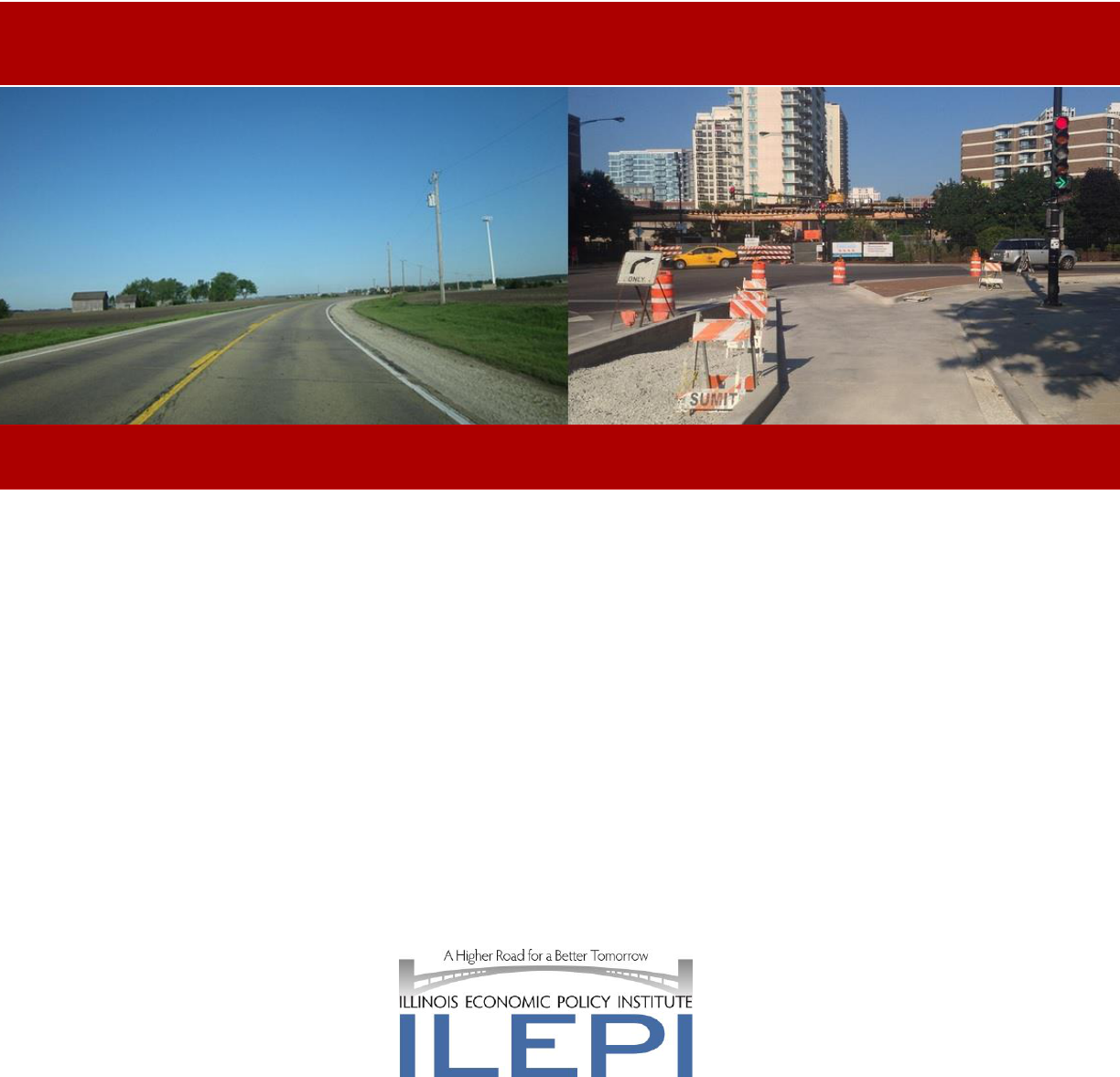
Better Roads Ahead
July 18, 2016
Frank Manzo IV
Policy Director
BETTER ROADS AHEAD
Vote YES on the Illinois Transportation Funds Amendment

BETTER ROADS AHEAD: VOTE YES ON THE ILLINOIS TRANSPORTATION FUNDS AMENDMENT
i
Executive Summary
The Illinois Transportation Funds Amendment would constitutionally protect– or “lockbox”– all revenue contributed
by drivers through motor fuel taxes, tollways, licenses, and vehicle registration fees and require that the money is used
solely for transportation purposes. Revenue generated by those who use transportation infrastructure would only be
allowed to be spent on public highways, roads, bridges, mass transit systems, commuter rail, airports, and other forms
of transportation.
This amendment to constitutionally protect transportation funds is a common-sense measure. As a multi-modal
transportation hub of America, Illinois needs high-quality transportation infrastructure. Motor fuel taxes, licenses, and
vehicle registration fees have always been intended to fund transportation infrastructure. A recent ballot initiative in
neighboring Wisconsin demonstrates that voters want their user fees to go to their intended purposes.
The Illinois amendment has strong bipartisan support from Republicans and Democrats. The Illinois House voted
98-4 in favor and the Illinois Senate voted 55-0 in favor of the constitutional amendment. Local governments, private
businesses, the Chamber of Commerce, labor unions, transportation associations, and regional planning organizations
have endorsed passage of the constitutional amendment.
Experience has shown that voters should not trust Illinois politicians to use transportation revenues on
transportation expenditures. Despite the fact that motor fuel taxes, licenses, and vehicle registration fees are all
intended for transportation funding, lawmakers have diverted about $6.8 billion from transportation funds since 2002.
An amendment to the constitution would prohibit lawmakers from creating new potholes and unsafe infrastructure over
the long run to close other, short-term budget holes.
The total cost of these diversions has been a $3.2 billion loss in economic output. Over the past decade and a half,
diversions out of the Road Fund, the State Construction Account, and other transportation funds have resulted in 4,747
fewer jobs in Illinois and a significant economic loss of $3.2 billion. A constitutional lockbox on transportation funds
would protect these jobs, boost the economy, and improve economic efficiency in Illinois.
Illinois politicians have wasted tax dollars on bureaucracy and mismanagement for too long. By requiring all
money from transportation-related taxes to be spent on transportation, the Illinois Transportation Funds Amendment
would increase funding for roads and bridges in Illinois. The lockbox amendment, if passed, would also increase funding
for safety inspections of roads, bridges, and commuter rail lines.
The Illinois Economic Policy Institute (ILEPI) urges the public to vote Yes on the constitutional amendment.

BETTER ROADS AHEAD: VOTE YES ON THE ILLINOIS TRANSPORTATION FUNDS AMENDMENT
ii
Table of Contents
Executive Summary
i
Table of Contents
About the Authors
Photo Credits
ii
ii
ii
Introduction
1
Why User Fees Should Be Protected
The Wisconsin Case Study
2
3
The Cost of Previous Diversions
4
In Their Own Words: Bipartisan Support in Illinois
5
The Economic Cost of Not Having a Lockbox
Concluding Remarks
6
8
Sources
10
About the Author
FRANK MANZO IV, MPP is the Policy Director of the Illinois Economic Policy Institute (ILEPI). He specializes in
labor market policies, economic development, infrastructure investment, the construction industry, and public finance.
He earned a Master of Public Policy from the University of Chicago Harris School of Public Policy and a Bachelor of
Arts in Economics and Political Science from the University of Illinois at Urbana-Champaign. He can be contacted at
Photo Credits
Cover: “Illinois State Route 126” © Creative Commons Flickr user Doug Kerr (left) and “Construction of the
Clybourn Avenue curb-separated bike lane” © Creative Commons Flickr user Steven Vance (right).
Page 2: “Chicago (ILL) Willis Tower ( Ex. SEARS Tower ) 1974, Near West Side, expressways 290 W.
Eisenhower, 94, 90. ‘ traffic ’” © Creative Commons Flickr user (vincent desjardins).
Page 4: “19681109 08 Dan Ryan L construction near Cermak Rd.” © Creative Commons Flickr user David
Wilson.
Page 6: “Interstate 55 - Illinois” © Creative Commons Flickr user Doug Kerr.
Page 8: “Amtrak Chicago Incoming” © Creative Commons Flickr user Loco Steve.
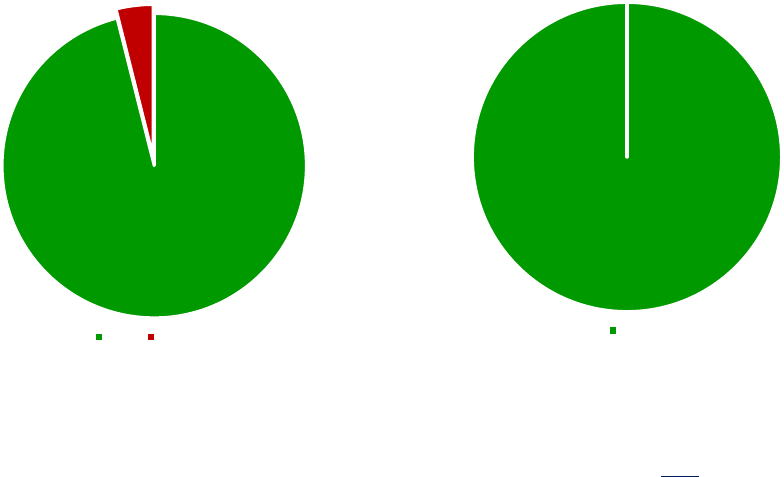
BETTER ROADS AHEAD: VOTE YES ON THE ILLINOIS TRANSPORTATION FUNDS AMENDMENT
1
Introduction
This November, Illinois voters will vote on a constitutional amendment that would prevent politicians in Springfield
from raiding transportation funds to address other budget shortfalls. The Illinois Transportation Funds Amendment,
HJRCA0036, would constitutionally protect– or “lockbox”– all revenue contributed by drivers through motor fuel taxes,
licenses, and vehicle registration fees and ensure that the money is used solely for transportation purposes. Revenue
generated by those who use transportation infrastructure would only be allowed to be spent on constructing, maintaining,
and repairing roads, bridges, mass transit systems, rail, airports, and other forms of transportation. The changes would
only apply to transportation-related fees (Reboot Illinois, 2016).
The constitutional amendment passed the Illinois General Assembly with nearly unanimous bipartisan support (Figure
1). On April 22, 2016, the House voted 98-4 in favor of the bill (96.1 percent). The bill was subsequently sent to the
Senate, where it was approved by a vote of 55-0 (100.0 percent) on May 5, 2016. The across-the-aisle support is
encouraging during this prolonged period of partisan gridlock in Illinois.
FIGURE 1: ILLINOIS GENERAL ASSEMBLY VOTES ON THE ILLINOIS TRANSPORTATION FUNDS AMENDMENT, APRIL-MAY 2016
Source(s): Ballotpedia, 2016a.
The Illinois Transportation Funds Amendment, or the “Illinois Lock Box Amendment,” will be decided upon by the
voters of Illinois. The Illinois Economic Policy Institute (ILEPI) urges the public to vote Yes on the constitutional
amendment, ensuring that the whimsical lawmakers of Illinois are prohibited from using transportation funds for
anything other than their stated purpose. The remainder of this ILEPI Policy Brief presents the economic rationale for
protecting user fees, discusses a similar constitutional amendment that passed in Wisconsin in 2014, examines the
previous sweeps and diversions from Illinois’ transportation funds, and assesses the economic costs of not having a
lockbox on transportation funds in Illinois. The report concludes by recapping key findings.
98
96.08%
4
3.92%
Illinois House Votes on Transportation
Funds Amendment (2016)
Yes No
55
100.00%
0
0.00%
Illinois Senate Votes on Transportation
Funds Amendment (2016)
Yes
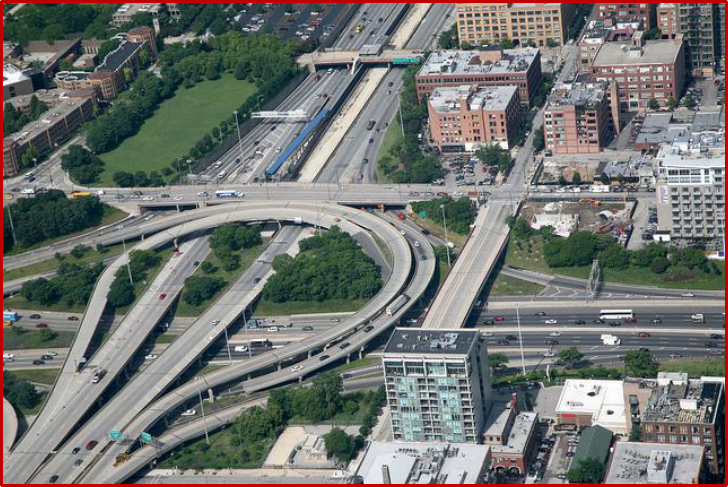
BETTER ROADS AHEAD: VOTE YES ON THE ILLINOIS TRANSPORTATION FUNDS AMENDMENT
2
Why User Fees Should Be Protected
A “user fee” is simply a price paid by individuals for a government-provided good or service. Whereas a tax is levied
on the general population, a user fee is only charged when an individual uses a good or service. In transportation, user
fees are based on the principle that those who drive on the roads should pay for the roads. Motor fuel taxes, tolls, and
registration fees are examples of user fees that Illinois motorists pay in exchange for high-quality public infrastructure.
User fees have many advantages compared to general taxation. First, they promote taxpayer fairness. Infrastructure
investment is paid for by those who actually use the roads, bridges, and mass transit systems instead of being subsidized
by people who do not. Simply put, motorists get what they pay for. Second, road user fees give public bodies flexibility
to adjust revenues and expenditures to meet economic conditions. If a toll road becomes more congested, the Illinois
State Toll Highway Authority can raise the rate to generate more revenue, alleviate traffic, and improve the environment.
Finally, user fees eliminate the “free-rider” problem. While anyone can voluntarily choose to drive on public roads in
Illinois, constructing and maintaining the infrastructure is not free. User fees help to prevent overuse of public
infrastructure. Motor fuel taxes, tolls, and registration fees improve motorist awareness on the costs of driving on the
roads (Summers, 2005).
When Illinois’ residents pay road and mass transit user fees, there is a reasonable expectation that the money they
contribute will actually go to fund transportation infrastructure. However, state legislators have continually diverted
money in transportation funds to other purposes many times over the past decade and a half years. Only about 73 percent
of all spending from the Road Fund is on direct transportation expenditures (Manzo, 2014). From 2002 to 2015, an
estimated $6.8 billion was diverted away from the transportation funds to pay for general government, state police,
Department of Natural Resources, health insurance, workers compensation, and other costs (TFIC, 2016). Additionally,
in 2015, lawmakers decided to sweep $1.3 billion from special funds to close the state revenue gap– including $250
million from the Road Fund (The State Journal-Register, 2015).

BETTER ROADS AHEAD: VOTE YES ON THE ILLINOIS TRANSPORTATION FUNDS AMENDMENT
3
Illinois motorists deserve better. Most states have constitutional language designating how transportation revenues are
to be used; 19 have specific “trust funds,” or lockboxes. The future population of Illinois deserves high-quality
transportation infrastructure. Road Fund revenues should be used to close potholes created by vehicles, not close other
budget holes created by state politicians.
The Wisconsin Case Study
In 2014, voters in Wisconsin approved a comparable constitutional amendment called the “Wisconsin Transportation
Fund Amendment.” The amendment was “put on November 4, 2014 ballot to ensure that revenue generated from
transportation-related fees and taxes would be protected from diversion to non-transportation programs outside of the
Wisconsin Department of Transportation’s jurisdiction” (TIAC, 2014). In February 2013, the resolution passed the
Assembly by a vote of 82-13 (86.3 percent) and the Senate by a vote of 25-8 (75.8 percent).
Proponents of a constitutionally-protected transportation fund argued that it was a common-sense measure. In
Wisconsin, nearly $1.4 billion was diverted from transportation funds to other sources over a decade. Note that this is
significantly less than the $6.8 billion that has been diverted from Illinois’ Road Fund since 2002. Included in the 50-
organization coalition to lockbox Wisconsin’s transportation funds were local chambers of commerce, labor unions,
businesses, and transportation associations. This bipartisan, broad-based coalition was essential to garnering public
support for the constitutional amendment (TIAC, 2014).
The Wisconsin State Journal urged voters to approve the constitutional amendment. “State motorists deserve a
guarantee,” the newspaper wrote in an October 3, 2014 editorial. The state needed to get serious about paying for
transportation, the article continued. “Yet both major political parties, when in charge, have failed to raise as much
money in transportation revenue as they’ve spent on transportation projects. … Voters this fall can help steer state
leaders in the right direction by insisting the transportation fund is protected” (Wisconsin State Journal, 2014). The
Editorial Board of the Green Bay Press-Gazette concurred on October 15, 2014. The newspaper contended, “If those in
the State Capitol can’t stop themselves from taking money from designated funds and using it for unrelated expenses,
then maybe it’s time for a constitutional amendment to do that” (Ballotpedia, 2016b).
On November 4, 2014, 79.9 percent of Wisconsin residents voted Yes to the constitutional amendment compared to
20.1 percent voting No (Figure 2). With four-fifths of voters approving the measure, the amendment passed. Voters in
Illinois should do the same.
FIGURE 2: WISCONSIN TRANSPORTATION FUND AMENDMENT, QUESTION 1 – NOVEMBER 4, 2014 POPULAR VOTE
Election Result
Number of Votes
Percentage
Yes
1,733,101
79.94%
No
434,806
20.06%
Source(s): Ballotpedia, 2016b.
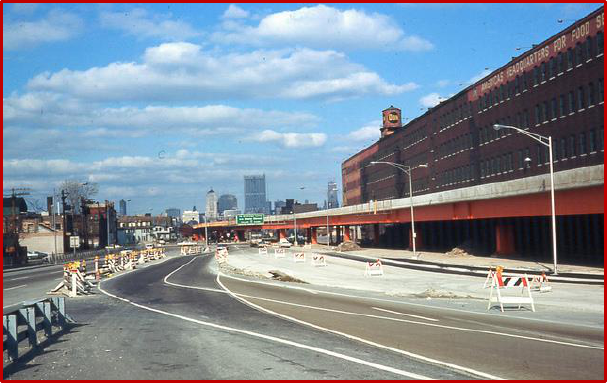
BETTER ROADS AHEAD: VOTE YES ON THE ILLINOIS TRANSPORTATION FUNDS AMENDMENT
4
The Cost of Previous Diversions
Opponents of the constitutional amendment are concerned that a lockbox on transportation funds would create budget
inflexibility at a time when Illinois needs to balance budgets. By specifically protecting transportation funds, politicians
could argue that other non-protected funds will be plundered to make up general budget shortfalls. Though valid, these
are generally weak arguments.
First, during the recent budget impasse in Illinois that lasted for over a year, the Illinois Department of Transportation
was nearly forced to shut down $2 billion in planned and ongoing public infrastructure projects. Politicians in Illinois
nearly halted spending on transportation– even though the revenue had already been generated through motor fuel taxes,
licenses, and other fees– because they could not find enough revenue to fund other services. Politicians should not be
able to suspend vital transportation investments and freeze taxpayer dollars that have already been paid by motorists
because they cannot find common ground to solve other revenue problems (The State Journal-Register, 2016a).
Lawmakers have not allocated transportation revenues wisely in the past. Since 2002, nearly $6.8 billion has been
diverted away from Illinois’ transportation funds to pay for other items. Less than three-quarters of the revenue paid by
Illinois’ drivers in motor fuel taxes, licenses, and vehicle registration fees was actually spent on direct transportation
expenditures from 2002 to 2012 (Manzo, 2014).
Illinois’ lawmakers should not be allowed to balance the General Fund in one year by taking surpluses from the Road
Fund that are intended for use in future years. Transportation fund diversions place an indirect cost on future generations,
who will have to pay to fix inadequate roads, bridges, and mass transit systems that have been underfunded. Driving on
roads in need of repair already costs Illinois motorists $441 per year in extra vehicle repairs and operating costs
(ISASCE, 2014). Diversions away from infrastructure investment have only increased this personal cost. An amendment
to the constitution would prohibit lawmakers from creating these new potholes in order to close other unnecessary
budget holes.
The costs of inaction on transportation funding have been substantial. Previous underinvestment, diversions, and
political decisions have resulted in a $43 billion transportation deficit in Illinois (MPC, 2016). In addition to political
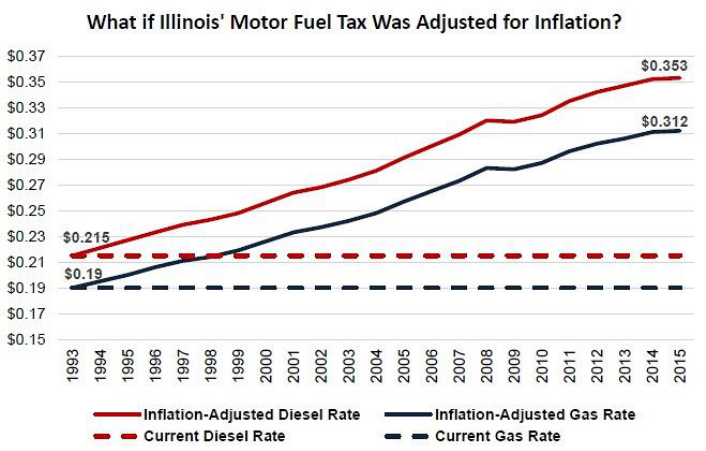
BETTER ROADS AHEAD: VOTE YES ON THE ILLINOIS TRANSPORTATION FUNDS AMENDMENT
5
diversions, the failure by lawmakers to simply adjust motor fuel taxes for inflation has cost the state another $10 billion
since the 1990s (Figure 3).
FIGURE 3: ILLINOIS’ MOTOR FUEL TAX RATES IF THEY WERE ADJUSTED FOR INFLATION, MANZO & MANZO (2016)
Source(s): Manzo & Manzo, 2016.
The Illinois Transportation Funds Amendment promotes both government accountability and business confidence. By
providing a lockbox, Illinois residents can be assured that the money they pay to use the roads will actually go towards
the roads. Illinois residents want better infrastructure, and may be willing to pay slightly more in taxes or fees if they
know for certain that the money will go to improve roads and bridges. At the same time, contractors would be assured
that the state will have the necessary funds to continue investing in public infrastructure. Business confidence would
rise as transportation networks are modernized, making the flow of goods and people more efficient in Illinois.
The Economic Cost of Not Having a Lockbox
Over the past fourteen years, a total of $6.8 billion has been diverted from the Road Fund, the State Construction
Account, and other transportation funds for other purposes (Figure 4). These diversions represent about one-fifth of the
total revenue that was deposited into the accounts since 2002. Transfers to other funds ranged from $172 million to
$783 million per year. Most recently, politicians swept $522 million in transportation funds to close other budget holes
in 2015. The Illinois Transportation Funds Amendment would establish a firewall and prevent these diversions going
forward.
This section utilizes the IMPLAN (IMpact analysis for PLANning) software to measure the impact of these diversions
on total employment and economic activity in Illinois. IMPLAN is an input-output software that estimates the ripple
effect, or multiplier, of changes in industry spending. The input-output model investigates inter-industry relationships
in the Illinois economy based on Census data, specifically measuring market transactions between industries and
households. IMPLAN is considered the “gold standard” for economic impact modeling.
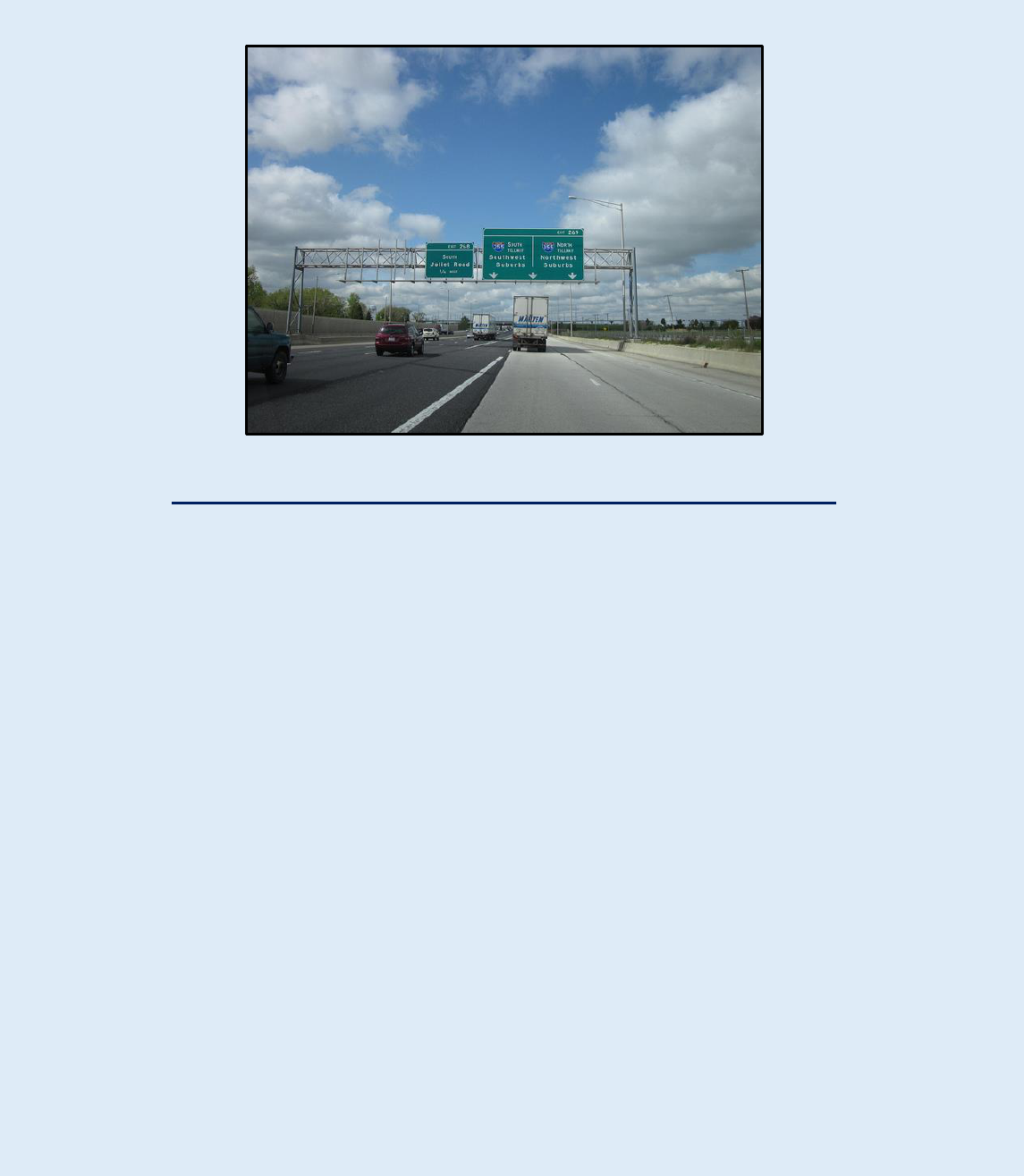
BETTER ROADS AHEAD: VOTE YES ON THE ILLINOIS TRANSPORTATION FUNDS AMENDMENT
6
IN THEIR OWN WORDS: BIPARTISAN SUPPORT IN ILLINOIS
Illinois Senate Republicans: “The constitutional amendment passed with
overwhelming support from both parties in the Legislature” (Illinois Senate GOP, 2016).
Illinois Democratic State Senator Bill Haine of Alton: “This is historic in the sense
that it will preserve the road fund from being raided for non-transportation, non-road
or bridge use” (Alton Daily News, 2016).
Illinois Democratic State Representative Brandon Phelps of Harrisburg: “It’s
important to have this lockbox amendment in place because it will leave more money
in transportation infrastructure, which will create more jobs” (The State Journal-
Register, 2016b).
Todd Maisch, President and CEO of the Illinois Chamber of Commerce:
“Together with lawmakers, the Illinois Chamber will spend the next six months
explaining to local chambers, business owners, laborers, and taxpayers that the
amendment will honor the promise that infrastructure projects will be sole beneficiary
of the Road Fund. … This will lead to a better transportation network, more jobs, and a
growing economy” (The State Journal-Register, 2016b).
Marc Poulos, Executive Director of the Indiana, Illinois, Iowa Foundation for
Fair Contracting, a labor-management group: “A thank you to 98 Representatives
and 55 Senators for protecting our transportation fees through a constitutional
amendment. Next up: voter approval on the November ballot” (Poulos, 2016).
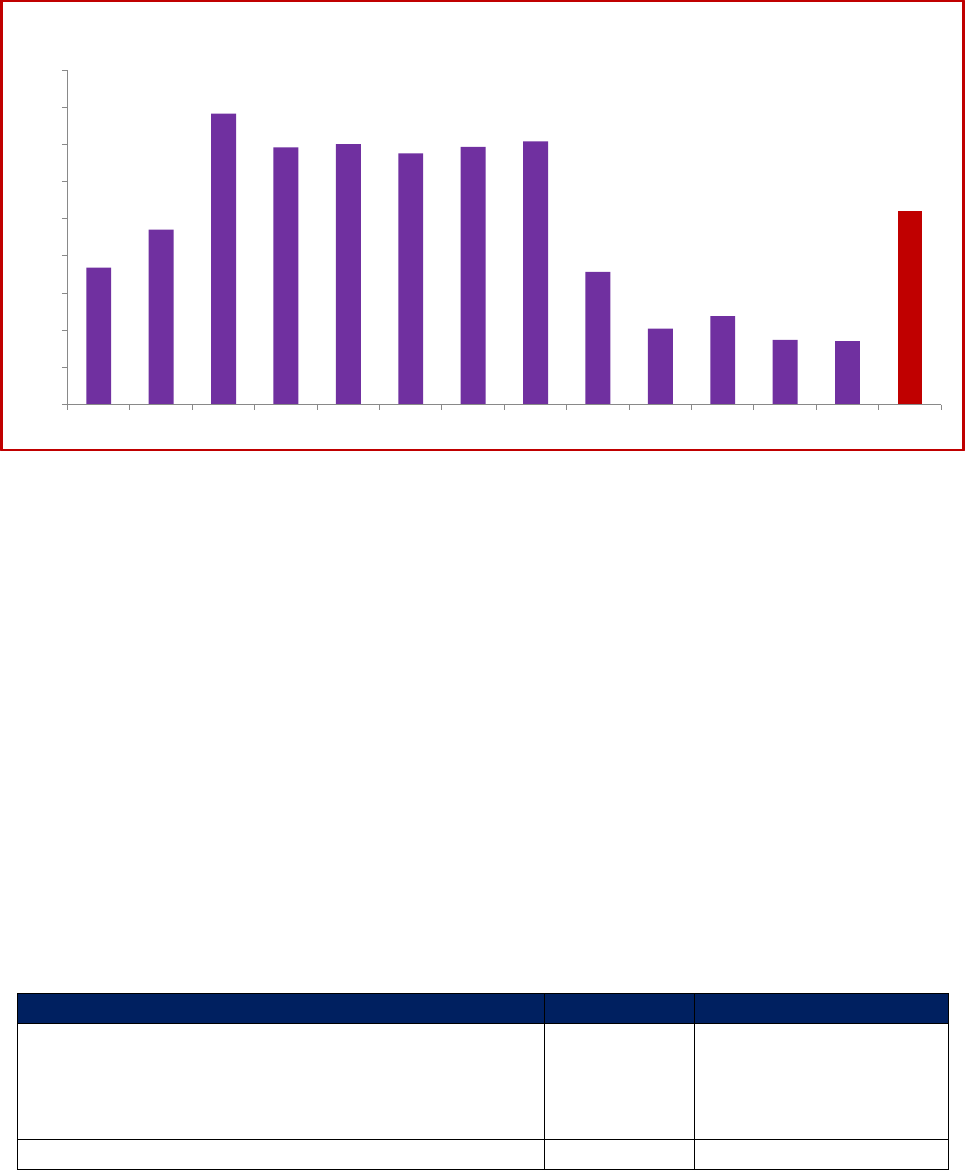
BETTER ROADS AHEAD: VOTE YES ON THE ILLINOIS TRANSPORTATION FUNDS AMENDMENT
7
FIGURE 4: TOTAL DIVERSIONS FROM ILLINOIS’ TRANSPORTATION FUNDS BY YEAR, 2002-2015, IN MILLIONS OF DOLLARS
Source(s): Author’s analysis of TFIC, 2016 information.
Economic impact analyses produce three distinct effects: direct effects, indirect effects, and induced effects. The direct
effect is the impact on government as a result of the diversions. For instance, the diversions directly reduce the number
of blue-collar construction workers employed in Illinois because there are fewer dollars available to construct and
maintain transportation infrastructure. The indirect effect measures inter-industry purchases that occur, or fail to occur,
as a result of the diversions. As diversions reduce the investment in transportation construction projects, contractors
purchase less materials and machinery from other sectors in the Illinois economy. This is an indirect effect. Finally, the
induced effect is the broader consumer spending impact by those who are affected by the direct and indirect effects.
The economic cost of not having a lockbox on Illinois’ transportation funds has been significant (Figure 5). Since 2002,
diversions from transportation funds have cost more than 49,700 construction workers and transportation employees
their jobs. Estimates suggest that the diversions saved nearly 56,500 jobs at other state and local government agencies.
However, the cumulative indirect and induced effects have resulted in 11,500 jobs lost in other sectors of the Illinois
economy. In total, the economic cost of not having a lockbox on transportation funds has been a loss of 4,747 jobs in
the Illinois labor market since 2002.
FIGURE 5: ECONOMIC IMPACT ANALYSIS ON THE EFFECT OF TRANSPORTATION DIVERSIONS IN ILLINOIS, 2002-2015
Impact Type
Employment
Economic Output
Direct Effect: Construction and Transportation Workers
-49,736
-$6.16 billion
Direct Effect: State and Local Government Employees
+56,489
+$6.17 billion
Indirect Effect
-17,672
-$4.11 billion
Induced Effect
+6,172
+$0.93 billion
Total Effect
-4,747
-$3.17 billion
Source(s): Author’s analysis using IMPLAN, 2015.
The diversions also have had a negative impact on Illinois’ gross domestic product (GDP). Since 2002, not having a
lockbox on transportation funds has resulted in a $3.2 billion decline in economic activity throughout Illinois. The
$368
$471
$783
$692
$701
$676
$694
$708
$357
$204
$238
$174
$172
$522
$0
$100
$200
$300
$400
$500
$600
$700
$800
$900
2002 2003 2004 2005 2006 2007 2008 2009 2010 2011 2012 2013 2014 2015
Diversions from Illinois Transportation Funds from 2002-2015 (in Millions)
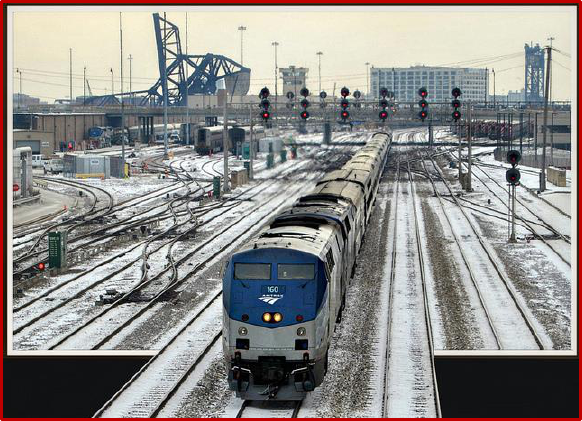
BETTER ROADS AHEAD: VOTE YES ON THE ILLINOIS TRANSPORTATION FUNDS AMENDMENT
8
diversions from the Road Fund, the State Construction Account, and similar funds result in an overall loss of jobs and
a drop in economic output in Illinois. Therefore, this accounting gimmick by politicians is economically inefficient
(Figure 5).
Concluding Remarks
The Illinois Transportation Funds Amendment would constitutionally protect– or “lockbox”– all revenue contributed
by drivers through motor fuel taxes, tollways, licenses, and vehicle registration fees and require that the money is used
solely for transportation purposes. Revenue generated by those who use transportation infrastructure would only be
allowed to be spent on public highways, roads, bridges, mass transit systems, commuter rail, airports, and other forms
of transportation.
This amendment to constitutionally protect transportation funds is a common-sense, bipartisan measure. As a multi-
modal transportation hub of America, Illinois needs high-quality transportation infrastructure. Motor fuel taxes,
licenses, and vehicle registration fees have always been intended to fund transportation infrastructure. The Illinois House
voted 98-4 in favor and the Illinois Senate voted 55-0 in favor of the constitutional amendment. Local governments,
private businesses, the Chamber of Commerce, labor unions, transportation associations, and regional planning
organizations have endorsed the constitutional amendment.
Experience has shown that voters should not trust Illinois politicians to use transportation revenues on transportation
expenditures. Despite the fact that motor fuel taxes, licenses, and vehicle registration fees are all intended for
transportation funding, lawmakers have diverted about $6.8 billion from transportation funds since 2002. An
amendment to the constitution would prohibit lawmakers from creating new potholes and unsafe infrastructure over the
long run to close other, short-term budget holes.
The economic cost of these diversions has been significant. Since 2002, diversions from transportation funds to other
purposes have resulted in 4,747 fewer jobs in Illinois and a loss of $3.2 billion in cumulative economic output. A

BETTER ROADS AHEAD: VOTE YES ON THE ILLINOIS TRANSPORTATION FUNDS AMENDMENT
9
constitutional lockbox on transportation funds would protect these jobs, boost the economy, and improve economic
efficiency in Illinois.
Illinois politicians have wasted tax dollars on bureaucracy and mismanagement for too long. By requiring all money
from transportation-related taxes to be spent on transportation, the Illinois Transportation Funds Amendment would
increase funding for roads and bridges in Illinois. The lockbox amendment, if passed, would also increase funding for
safety inspections of roads, bridges, and commuter rail lines.
The Illinois Economic Policy Institute (ILEPI) urges the public to vote Yes on the constitutional amendment.
BETTER ROADS AHEAD: VOTE YES ON THE ILLINOIS TRANSPORTATION FUNDS AMENDMENT
10
Sources
Alton Daily News. (2016). “Senate Approves Lockbox Amendment.” Article by Doug Jenkins, WBGZ Radio.
Ballotpedia. (2016) (a). “Illinois Transportation Funds Amendment (2016).” The Encyclopedia of American Politics.
Ballotpedia. (2016) (b). “Wisconsin Transportation Fund Amendment, Question 1 (2014).” The Encyclopedia of American
Politics.
HJRCA0036. (2016). “CON AMEND-REVENUE-ROAD FUND.” 99
th
General Assembly. Illinois General Assembly.
Illinois Senate GOP. (2016). “Voters Will See Measure to Protect Road Funds on November Ballot.” Illinois Senate Republicans.
IMPLAN. (2015). IMPLAN Group, LLC, IMPLAN System (data and software).16740 Birkdale Commons Parkway, Suite 206,
Huntersville, NC 28078. Available at: www.implan.com.
ISASCE. (2014). “Roads.” 2014 Report Card for Illinois’ Infrastructure. Illinois Section of the American Society of Civil
Engineers
Manzo IV, Frank. (2014). Off-Roading? Analyzing Diversions from Illinois’ Road Fund. Illinois Economic Policy Institute.
Manzo IV, Frank and Jill Manzo. (2016). A $10 Billion Loss: Illinois’ Motor Fuel Tax Should Have an Inflationary Adjustment.
Illinois Economic Policy Institute.
MPC. (2016). Illinois Has a $43 Billion Transportation Deficit. Metropolitan Planning Council.
Poulos, Marc. (2016). Twitter post on 5 May 2016. Indiana, Illinois, Iowa Foundation for Fair Contracting.
Reboot Illinois. (2016). “Illinois Road Fund ‘Lockbox’ Only Constitutional Amendment to Make It Out Alive.” Article by Kevin
Hoffman, Reboot Staff.
The State Journal-Register. (2016) (a). “Stalemate Threatens $2B in Road Projects.” Article by John O’Connor, The Associated
Press.
The State Journal-Register. (2016) (b). “Illinois Road Construction Funds Get Swept.” Article by Doug Finke, State Capitol
Bureau.
The State Journal-Register. (2015). “Road Fund Bill the Only Constitutional Amendment to Pass Both Chambers.” Article by
Drew Zimmerman, State Capitol Bureau.
Summers, Adam. (2005). Funding the National Park System: Improving Services and Accountability with User Fees. Reason
Foundation.
TFIC. (2016). “Diversion Tracker” data from the Illinois Department of Transportation and State of Illinois Comprehensive
Annual Financial Reports. Transportation for Illinois Coalition.
TIAC. (2014). “Wisconsin Transportation Fund Amendment (2014) Case Study.” Transportation Investment Advocacy Center.
Wisconsin State Journal. (2014). “Vote ‘Yes’ on Transportation Amendment.” Article by the Wisconsin State Journal editorial
board.
